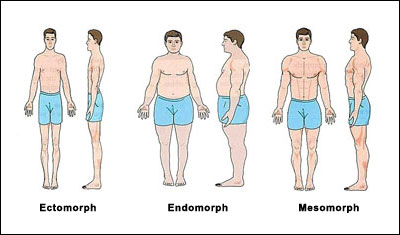How Many Calories Do I Need? Part 1
Posted by Michael Vacanti
First and foremost, let’s understand and accept this:
.
Calories Consumed – Calories Expended = Weight gain/loss
.
For a refresher on the subject, check out my Beginner’s Guide.
Counting

Most people view calorie counting as an obsessive, neurotic, annoying thing to do. In most cases, I tend to agree. Diet and exercise should be seamlessly integrated into our lives.
Constantly worrying about calories and micromanaging food intake demonstrates the exact opposite. It can be mentally draining and unnecessarily stressful.
Was that skim or whole milk I put in my coffee? Does Fun Size = Mini? THREE servings in this TINY package? Oh &%$#!
That being said, I do recommend counting calories for a specific group of people:
I want you to complete the challenge (below) if you:
- Have never counted calories before, and
- Want to change your physique
Most individuals are terrible at estimating their own caloric intake. And I don’t blame them. Unless you have given calorie counting a sincere effort, it is difficult to make off-the-cuff estimates.
In fact, studies have shown that people over/underestimate their daily calorie consumption by up to 50%. That means on an average diet of 2000-2500 calories, they miss the mark by over 1000 calories per day. That is the equivalent of two pounds of fat per week.

The Challenge
Count every calorie you consume for the next two weeks.
When I say count every calorie I mean count everything you eat. The cream and sugar you dumped in your coffee, the butter and oil you used to cook that chicken, the two glasses of OJ you slammed before bed – these all count.
Don’t worry, you don’t need to count calories forever; in fact I strongly discourage it. I want you to get good enough to make decent estimates in the future. The learning curve will be different for everyone; some of you may only require a few days while others might need a month or two. But it will pay huge future dividends.
After the challenge, you will know the macro composition of most foods and be comfortable estimating the calories in any meal.
You won’t be punching numbers into a calculator anymore because you’ll have already put in the legwork. After you climb the learning curve, the process becomes easy and thoughtless. At that point, you will be able to eat within your daily range without much thought at all.
“Everybody wants to be a body builder… But nobody wants to lift this HEAVY ASS WEIGHT!”
http://www.youtube.com/watch?v=MUZWtgurWxQ&width=500&height=350
.
More relevant to the average guy or girl:
“Everybody wants to look better… But nobody wants to do this EASY ASS MATH!”
After tracking calories for two weeks, compare the number of calories you are actually eating to your estimated caloric expenditure.
Estimating Caloric Expenditure
Calories consumed – calories expended = weight gain/loss
I will use “caloric expenditure” and “maintenance” interchangeably going forward.
Your caloric maintenance, or the total number of calories you burn in a day, is a moving target. There is not an exact science to calculating calories burnt. However, it is important to generate an estimate before we decide how much to eat.
The primary determinant of calories expended is body weight, but age, gender, caloric intake, activity level and genetics are also factors to varying degrees.
Again, it is important to remember that we are estimating caloric expenditure. This is a starting point. You will have to pay attention to your progress and may need to adjust caloric intake up or down based on your rate of weight gain or loss.
Calculating Your Caloric Expenditure
Here we will look at two ways to calculate your caloric expenditure. We will call those (1) Simple and (2) Slightly Less Simple, though they both involve nothing more than basic arithmetic.
First, you need to identify your genetic body type. In bodybuilding land there are only three body types:

Ectomorph: Ectos have a fast metabolism. They are skinny and have trouble gaining weight ‘No matter what they eat!’
Endomorph: Endos have a slow metabolism. Their body type is solid, often short and stocky. Endomorphs gain weight (both muscle and fat) easier than ectos but have trouble losing fat.
Mesomorph: Mesomorphs fall in the middle. Their body type is athletic with a metabolism of more average speed.
Note: The general public overestimates the affect of genetic body type in weight gain/loss.
.
Whereas, many people in the fitness industry underestimate its affect. They would say that “endomorphs” eat too much and “ectomorphs” don’t eat enough. This is true to some degree as I touched on in the over/underestimation of calories discussion above.
.
However, genetics play a role in both basal metabolic rate (the largest component of total metabolism) and NEAT (a smaller, less understood portion of total metabolism). The math isn’t perfect, but caloric expenditure can vary by up to 300 calories or more per day.
That being said, pick your genetic body type and let’s crunch the numbers.
 Simple Method
Simple Method
Bodyweight (lbs) x multiplier = Maintenance Level
Ecto: BW x 16-17 = Maintenance
Endo: BW x 13-14 = Maintenance
Meso: BW x 15 = Maintenance
Example: A 180 lb mesomorph will have a maintenance level of (180 x 15) 2700 calories per day.
This means our 180 lb friend can eat 2700 calories per day and will maintain his weight into the foreseeable future. If he wanted to gain weight, he would eat more than 2700 calories. If he wanted to lose weight, he would eat fewer than 2700 calories.
Slightly Less Simple Method
The second method is going to factor in genetic body type, age and gender to help you calculate your maintenance level.
Step 1) BW x 11(men) = a , BW x 10(women) = a
Step 2) Use the chart below to find your multiplier.
| Age | ||||
| 18-29 | 30-39 | 40-49 | 50-59 | |
| Ectomorph | 0.5 | 0.45 | 0.4 | 0.35 |
| Mesomorph | 0.4 | 0.35 | 0.3 | 0.25 |
| Endomorph | 0.3 | 0.25 | 0.2 | 0.15 |
Now take (a) x (multiplier) = b
Step 3) a + b = maintenance
Example: 180 lb, 25 year old male, mesomorph
Using the chart above, this person’s multiplier is 0.4
1) 180 x 11 = 1980
2) 1980 x 0.4 = 790
3) 1980 + 790 = 2770 calories
Both of these methods are going to give you a fairly accurate estimate of your caloric maintenance. However, everyone is different.
Two people of the same sex, weight, age and body type could have maintenance levels that are several hundred calories apart. So, pay attention to your progress. Know how many calories you consume and if you are on track to hit your goals.
How Many Calories Should I Eat For My Goals?
Stay tuned for part 2. We will discuss caloric consumption for specific fat loss and muscle gain goals.
Sherri
This article was very helpful. I have been trying to lose weight for some time but have just wavered between the same pounds. This has helped me understand at which point I should begin at so that I can get where I am going.March 3, 2015 at 2:39 pm |